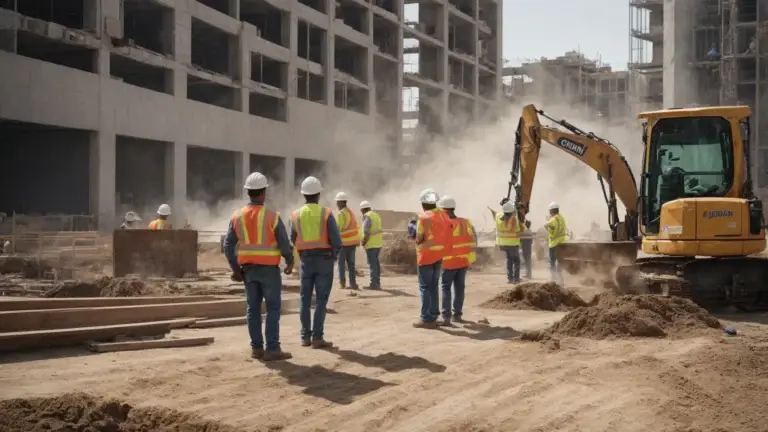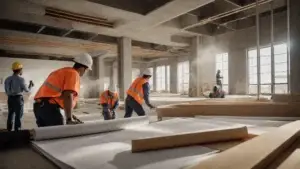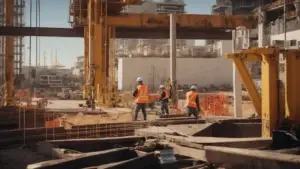Imagine stepping into a labyrinth, where every turn holds a new set of rules and regulations. That’s what commercial construction in San Diego is like – an intricate dance between permits, codes, and inspections.
But fear not; as we unravel the complexities of this process, you’ll discover the key players and steps that ensure the safety, quality, and compliance of every commercial project.
So, let’s dive into the world of commercial construction regulation in San Diego and unlock the secrets that shape the skyline of this vibrant city.
Key Takeaways
- Building permits are required for commercial construction in San Diego and must be obtained by following the outlined steps and submitting a detailed application.
- Zoning and land use regulations play a crucial role in guiding development and maintaining the character of different neighborhoods in San Diego.
- Construction codes and standards ensure commercial buildings’ safety, quality, and compliance with strict materials and safety regulations guidelines.
- San Diego has strict environmental regulations for the commercial construction industry, including environmental impact assessments and measures to promote sustainability and preserve the natural environment.
Building Permits
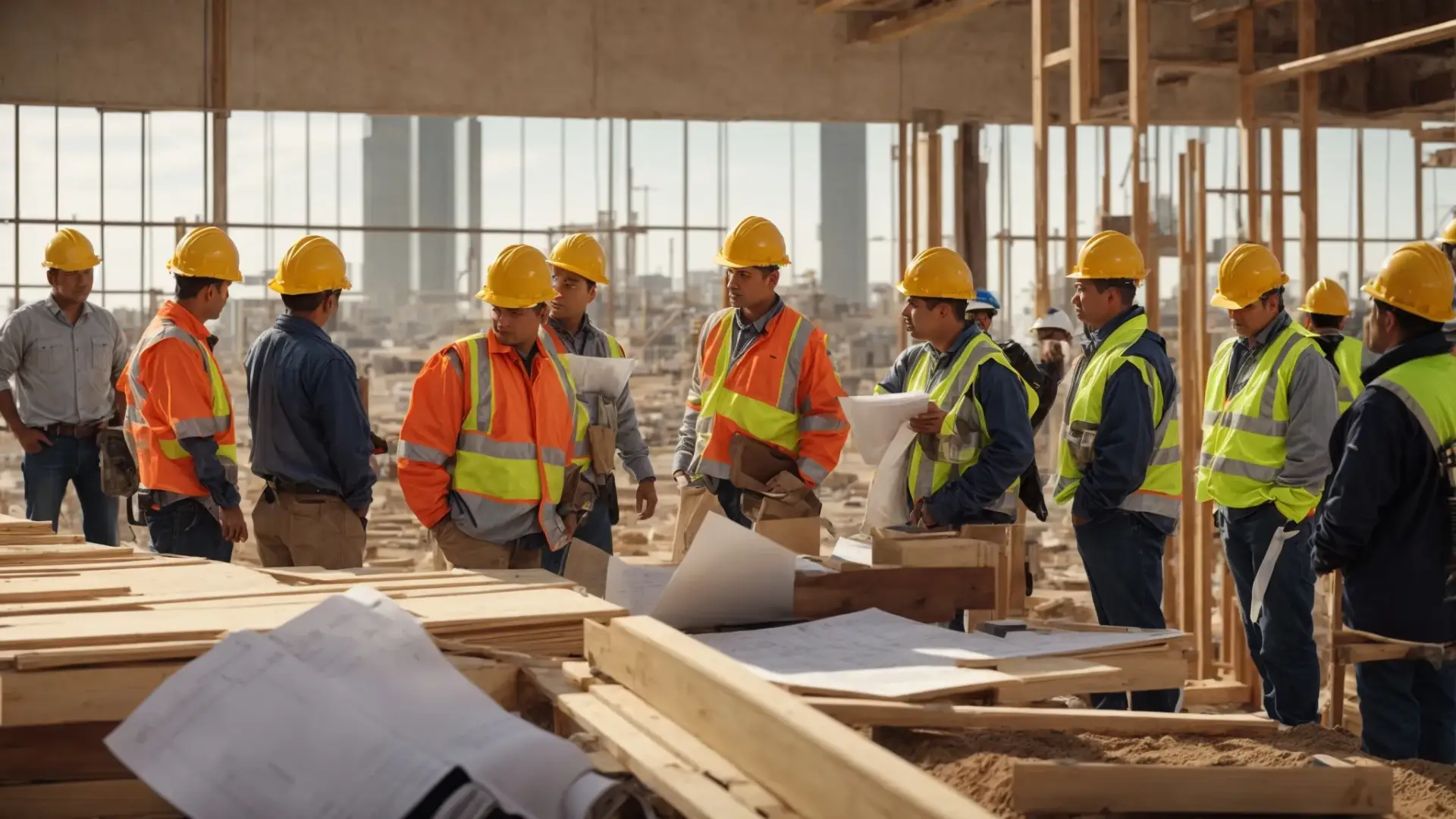
To obtain a building permit in San Diego, you must follow the steps outlined by the city’s regulatory authorities.
The permit application process is crucial in ensuring compliance with building codes and regulations. It begins with submitting a detailed application that includes architectural plans, engineering calculations, and other necessary documents.
The city’s authorities review the application to ensure it meets all requirements. Once approved, the construction timeline can begin. The timeline outlines the start and completion dates of the project, as well as any key milestones or deadlines. It’s important to adhere to the timeline to avoid any delays or penalties.
Inspections will be conducted Throughout the construction process to ensure the project is carried out according to the approved plans and permits.
Zoning and Land Use Regulations
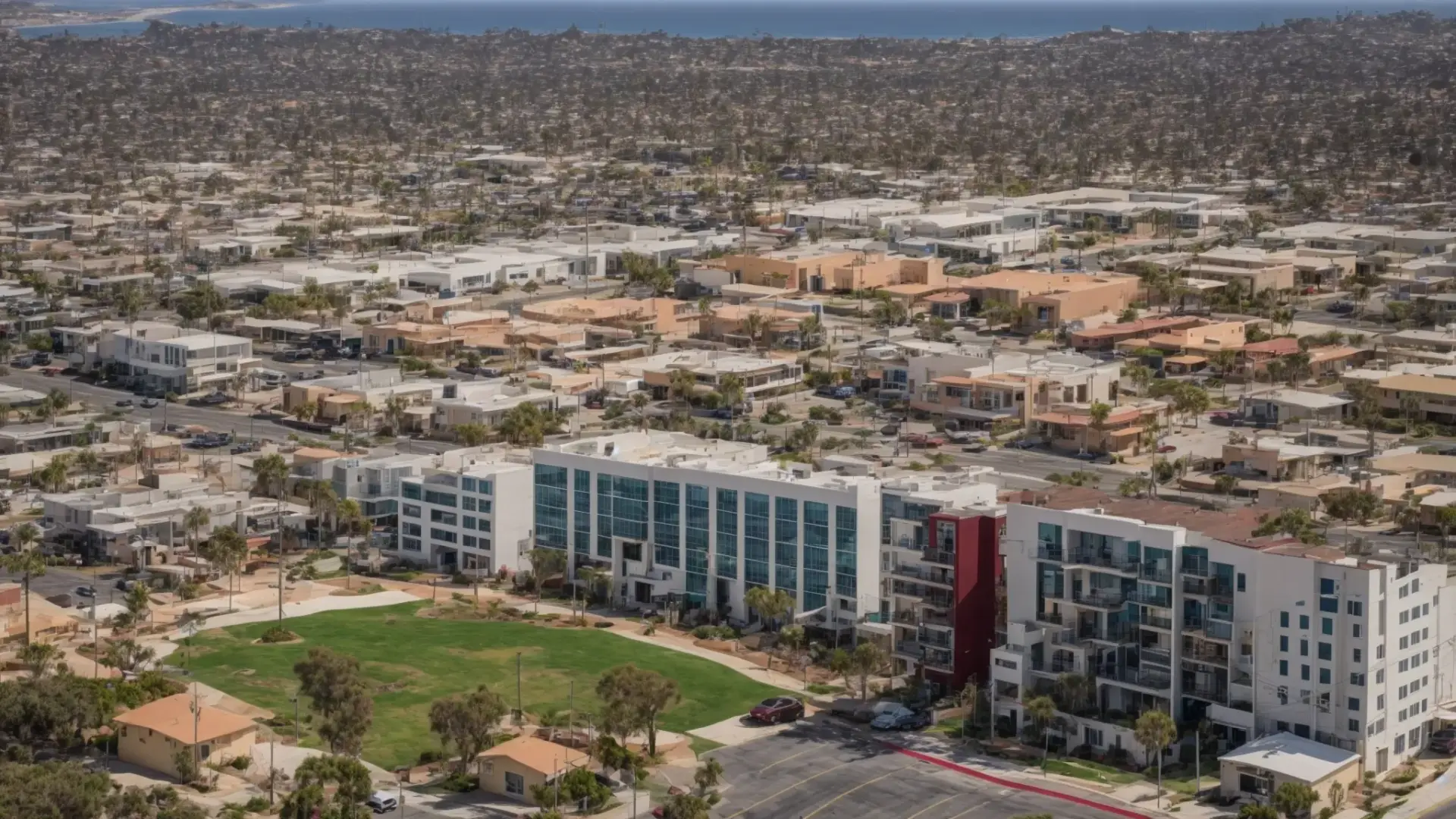
Now, let’s focus on the crucial aspect of zoning and land use regulations in San Diego’s commercial construction process. Zoning and land use regulations are vital in ensuring orderly and sustainable development in the city. These regulations guide land use and determine what structures can be built in specific areas. They help maintain the character of different neighborhoods and promote efficient urban planning. Development restrictions, such as height limitations and setback requirements, are imposed to protect the surrounding environment and maintain the quality of life for residents. Urban planning considerations are also considered, such as ensuring adequate infrastructure and access to amenities. The following table provides an overview of the different zoning categories and their permitted land uses:
| Zoning Category | Permitted Land Uses |
|---|---|
| Residential | Single-family homes, apartments, townhouses |
| Commercial | Retail stores, offices, restaurants |
| Industrial | Warehouses, factories, manufacturing facilities |
| Mixed-use | Combination of residential, commercial, and/or industrial uses |
| Open Space | Parks, recreational areas, conservation lands |
These regulations are enforced by the City of San Diego’s Planning Department to ensure responsible and sustainable growth in the commercial construction sector.
Construction Codes and Standards
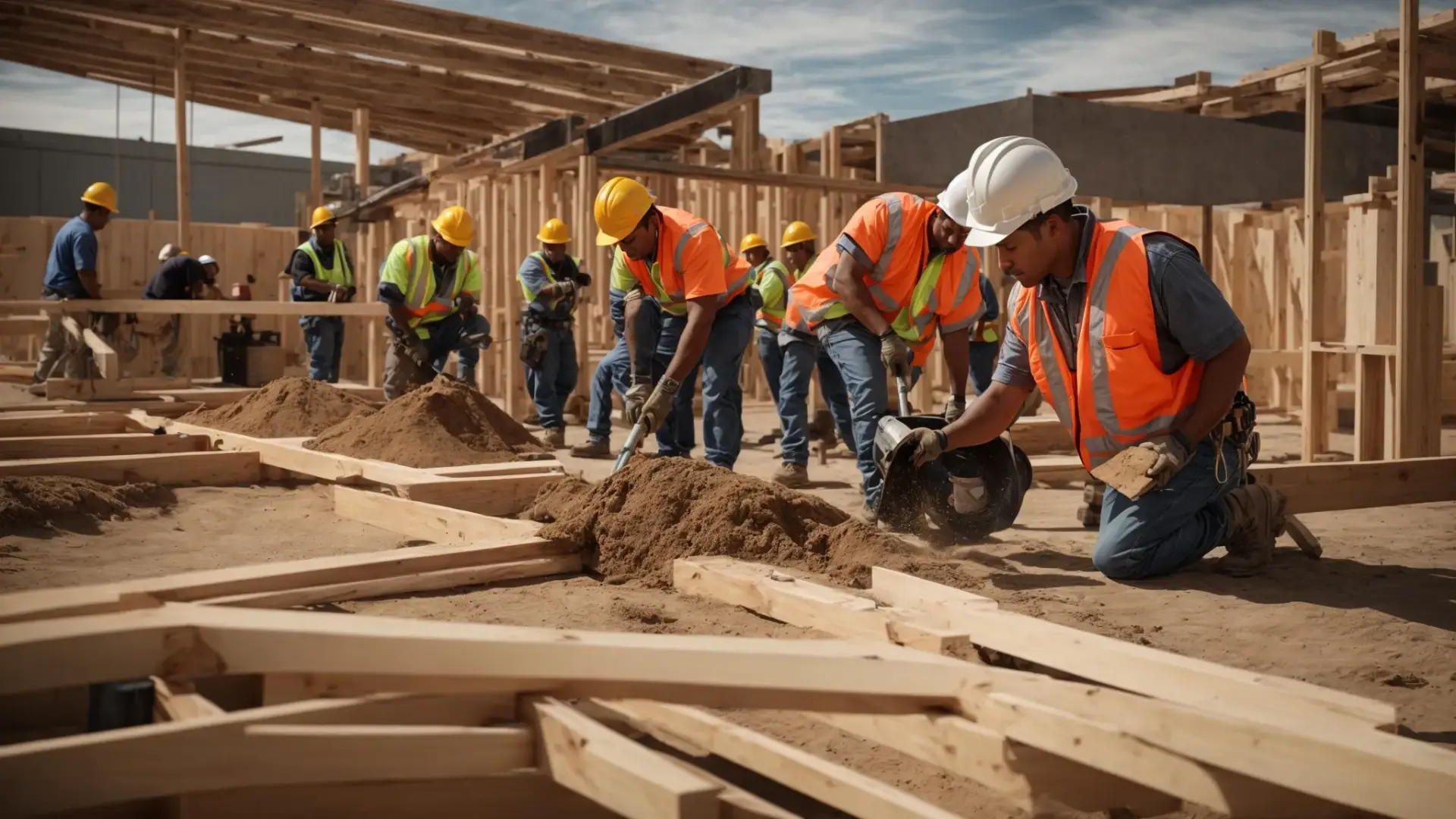
Construction codes and standards are essential to the commercial construction process in San Diego, ensuring buildings’ safety, quality, and compliance. To achieve these goals, the city enforces specific regulations regarding construction materials and safety measures.
Here are two important aspects to consider:
- Construction materials: San Diego has strict guidelines for materials used in commercial construction. These regulations ensure that buildings are constructed with durable and fire-resistant materials, minimizing the risk of structural failures and enhancing the overall safety of occupants.
- Safety regulations: The city of San Diego mandates adherence to safety regulations throughout the construction process. These regulations cover various aspects, including electrical wiring, fire safety measures, and accessibility for individuals with disabilities. Compliance with these standards helps to safeguard the welfare of both workers and future occupants.
Environmental Regulations
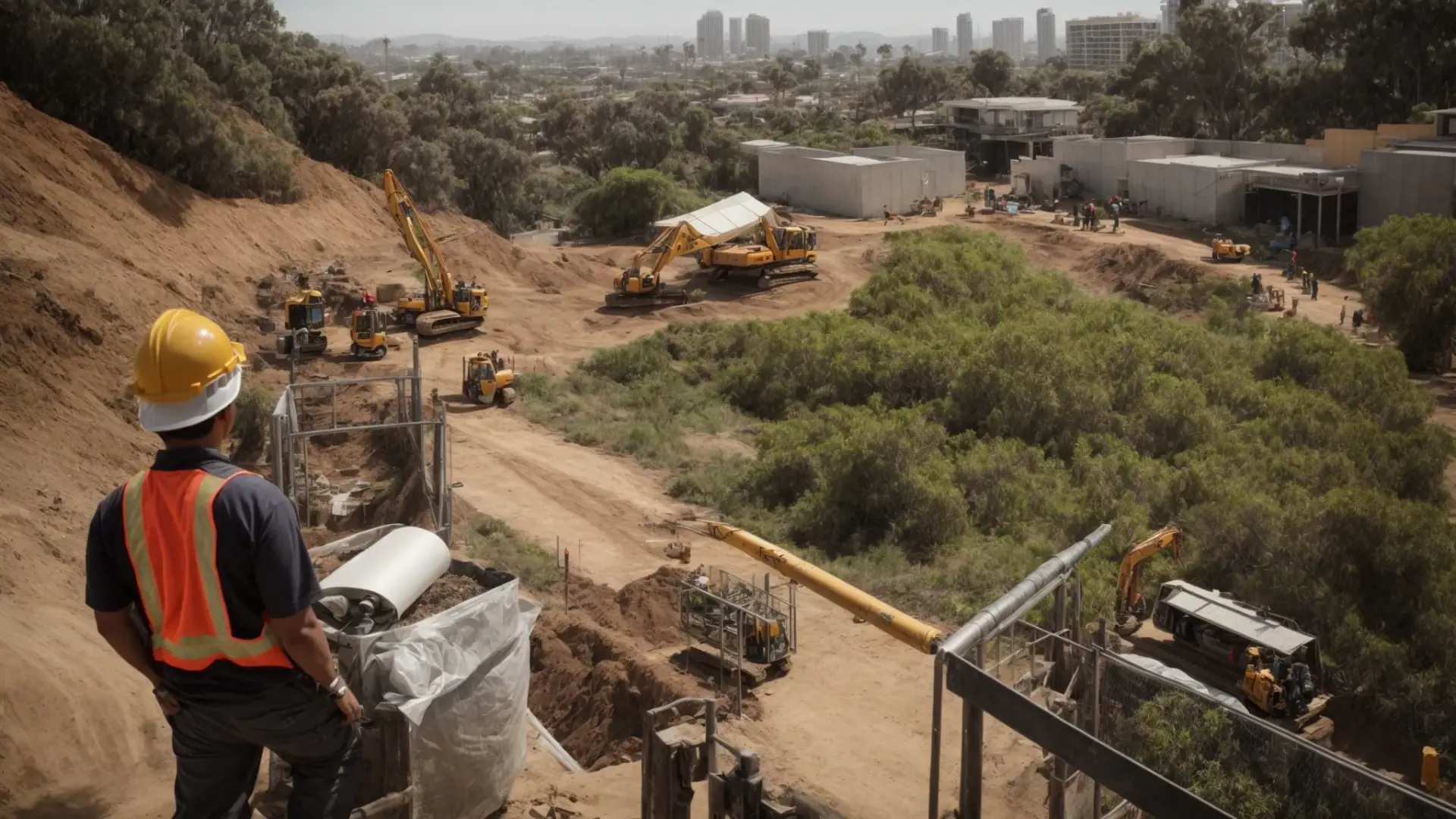
San Diego’s commercial construction industry must adhere to strict environmental regulations to ensure sustainable and eco-friendly practices are incorporated into building projects. These regulations aim to minimize the environmental impact of construction activities and promote sustainability measures throughout the project lifecycle.
Environmental impact assessments are conducted to evaluate the potential effects of construction projects on the surrounding environment, including air quality, water resources, and wildlife habitats. In addition, builders must implement measures that reduce energy consumption, improve water efficiency, and minimize waste generation.
This may involve using renewable energy sources, installing energy-efficient systems, implementing stormwater management strategies, and recycling construction materials. By enforcing these environmental regulations; San Diego ensures that its commercial construction industry plays a part in preserving the natural environment and fostering a sustainable future.
Inspection and Compliance Requirements
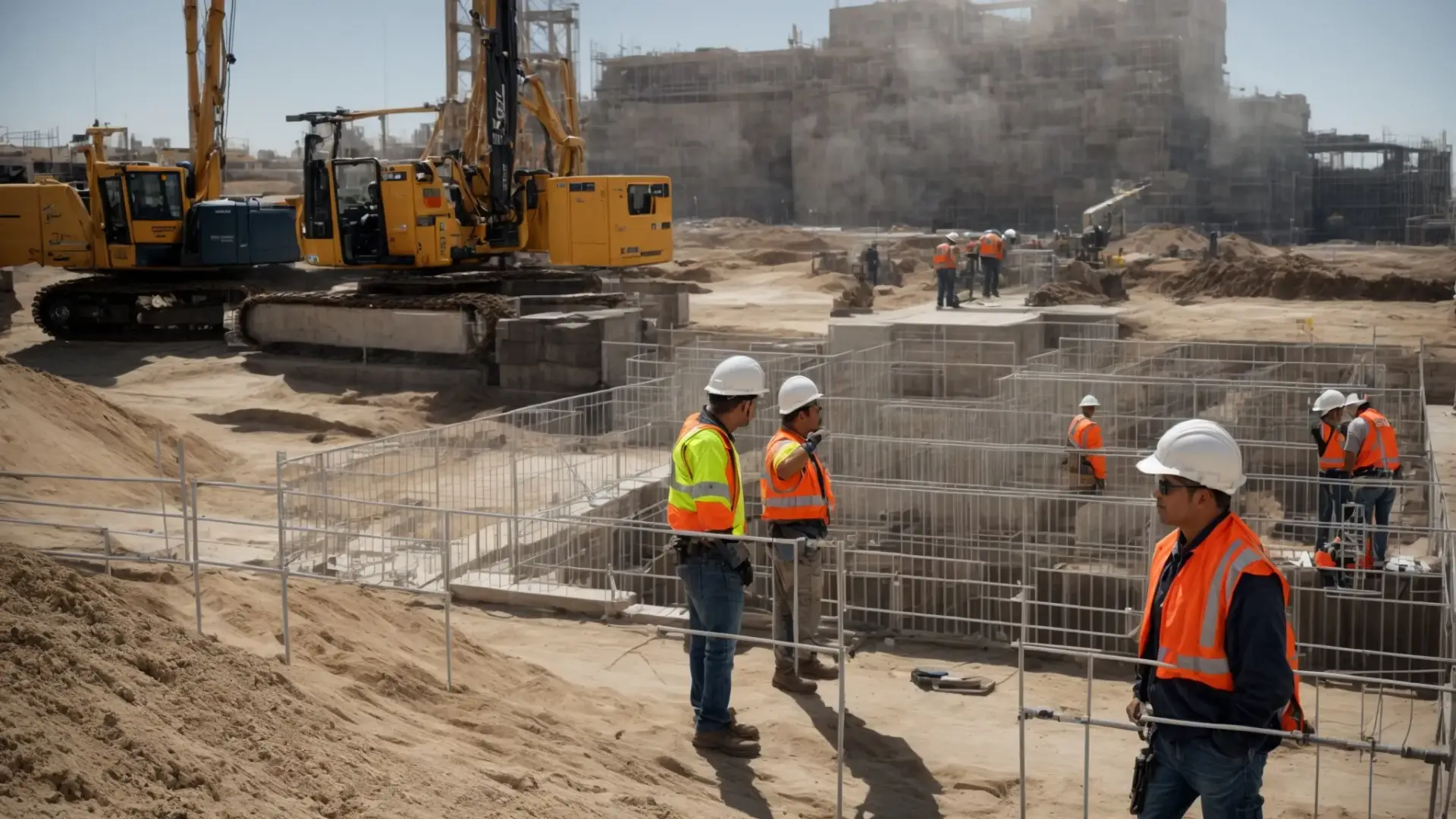
To ensure compliance with regulations, commercial construction projects in San Diego must undergo thorough inspections to assess adherence to environmental and sustainability standards. Inspection is critical in ensuring construction activities align with city regulations and guidelines.
Here are two key aspects of the inspection and compliance requirements:
- Inspection Process
- Inspections are conducted at various stages of the construction process, including foundation, framing, electrical, plumbing, and final inspections.
- Trained inspectors evaluate the project for compliance with building codes, safety measures, environmental regulations, and sustainability standards.
- Enforcement Measures
- If violations are identified during inspections, enforcement measures such as issuing citations, imposing fines, or requiring corrective actions may be taken.
- Repeat violations or severe infractions can result in stop-work orders, suspension, or revocation of permits.
These inspection and compliance requirements are in place to ensure that commercial construction projects in San Diego meet the highest standards of safety, environmental responsibility, and sustainability.
Frequently Asked Questions
How Much Does It Cost to Obtain a Building Permit for Commercial Construction in San Diego?
Obtaining a building permit for commercial construction in San Diego will incur cost implications. The permitting process involves submitting the necessary documents, paying the fees, and complying with the regulations set by the city.
What Is the Maximum Height Limit for Commercial Buildings in San Diego?
The maximum height limit for commercial buildings in San Diego is 30 feet without a building permit. However, if you obtain a building permit, you can exceed this limit based on certain conditions and restrictions.
Are There Any Specific Regulations for Parking Spaces in Commercial Construction Projects?
When it comes to parking spaces in commercial construction projects, there are specific regulations you need to be aware of. These include parking requirements and zoning restrictions that dictate the number and design of parking spaces.
Can a Commercial Construction Project Be Exempt From Environmental Impact Assessments in San Diego?
Yes, commercial construction projects in San Diego can be exempt from environmental impact assessments. However, certain conditions must be met, and the project must comply with all other applicable environmental regulations.
Are there Any Restrictions on using Certain Materials or Construction Techniques in Commercial Buildings in San Diego?
In San Diego, certain materials and construction techniques have restrictions regarding commercial buildings. Understanding these regulations is crucial to ensure your construction project’s compliance and safety.

